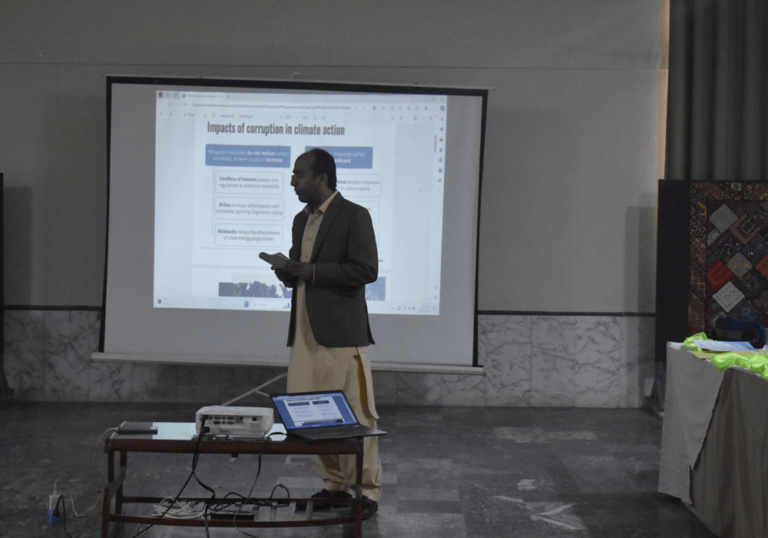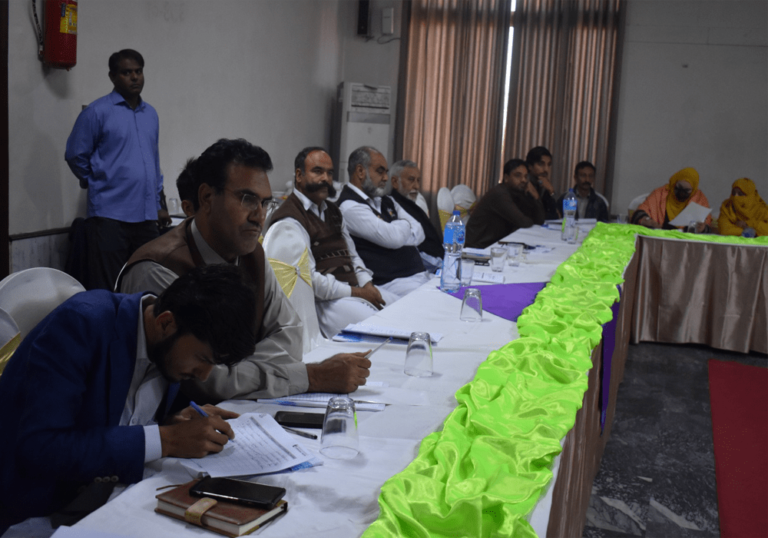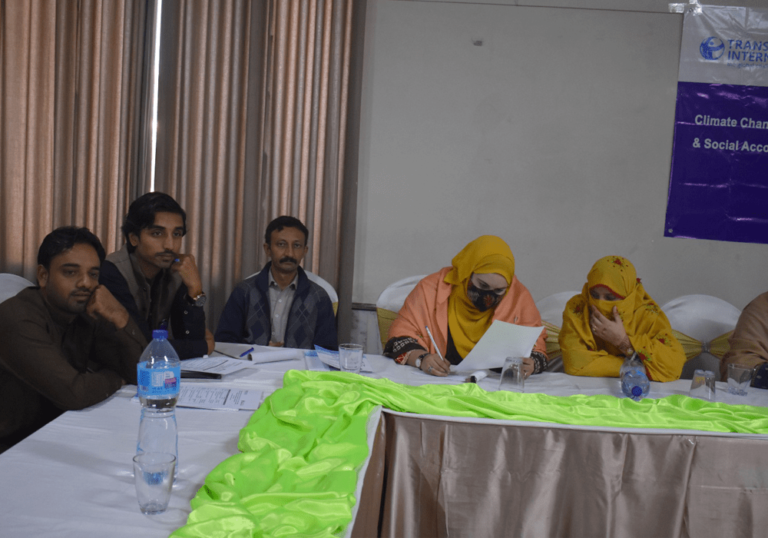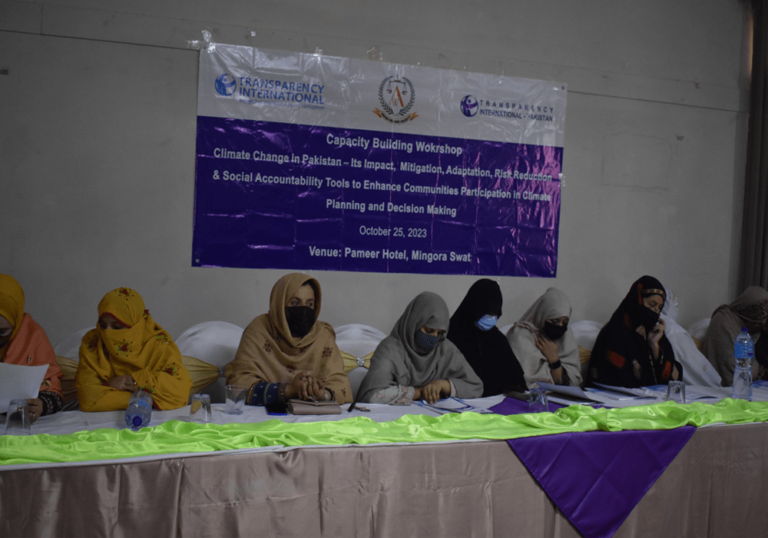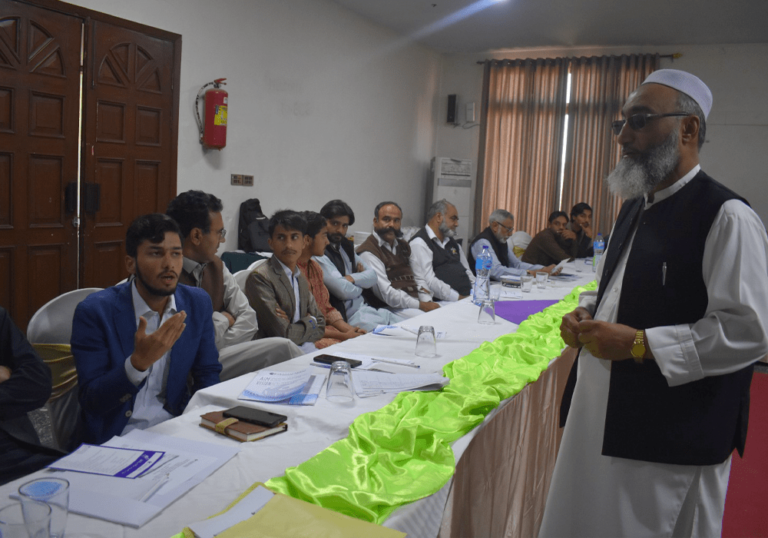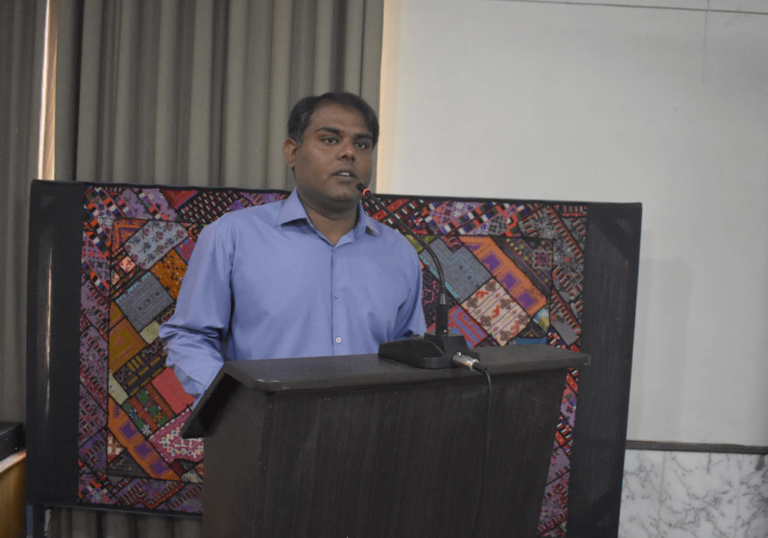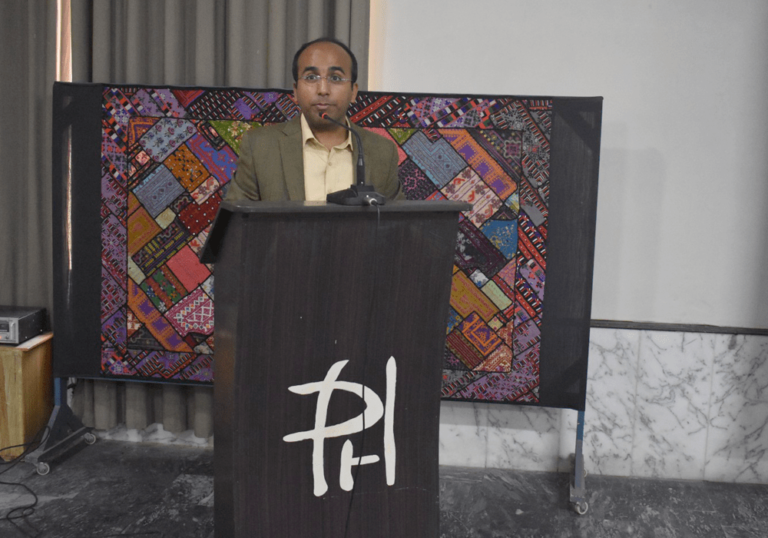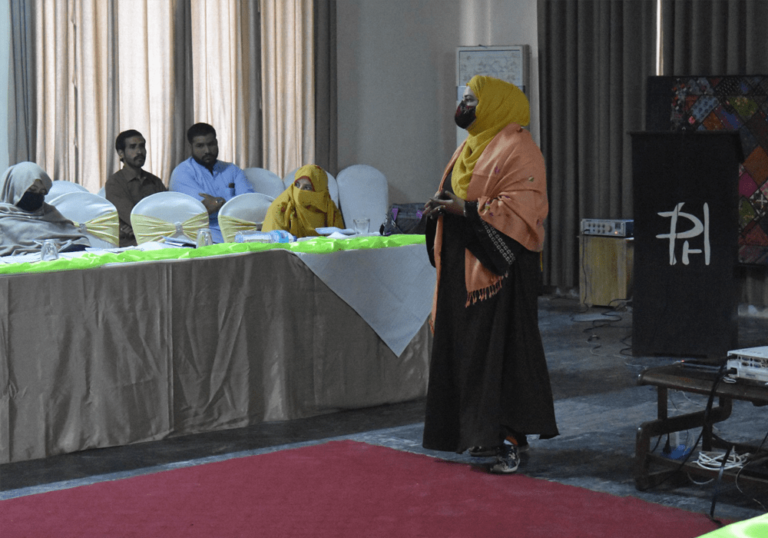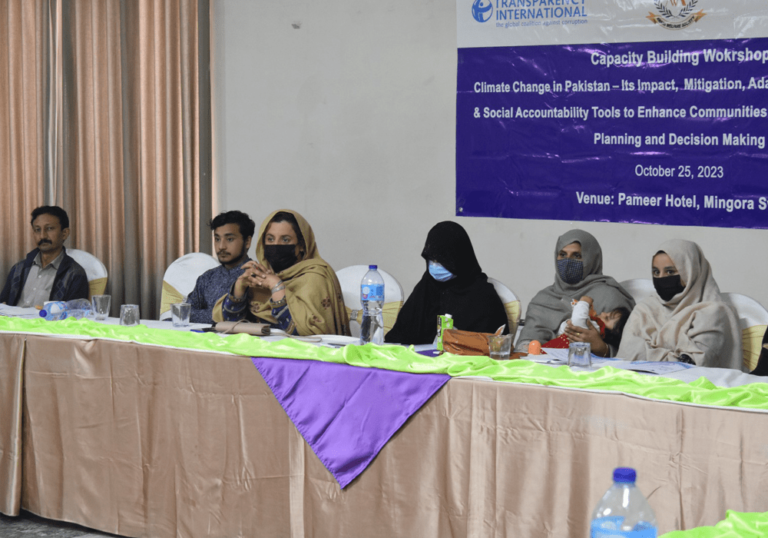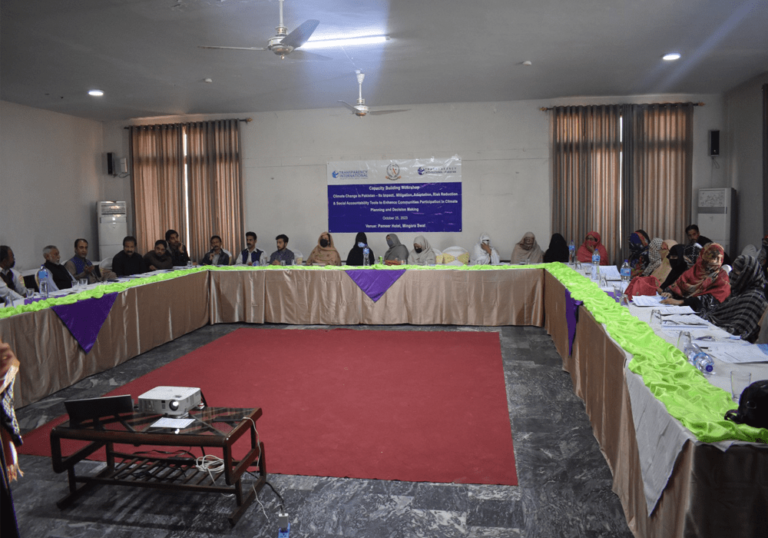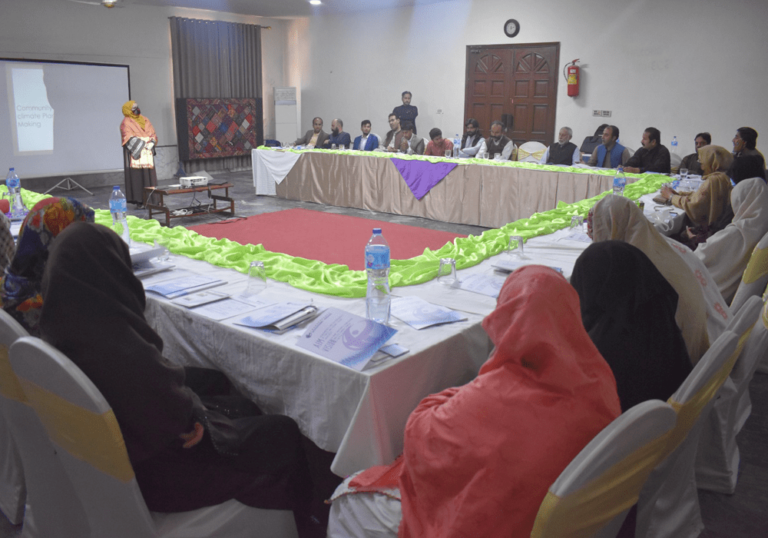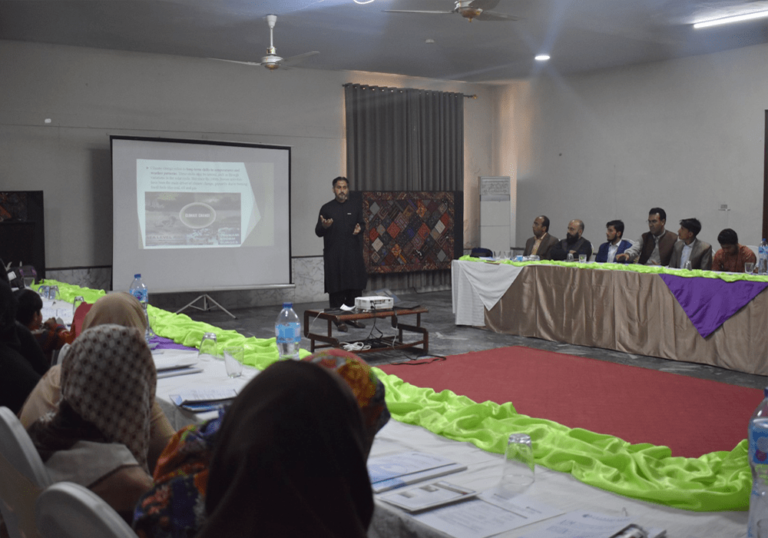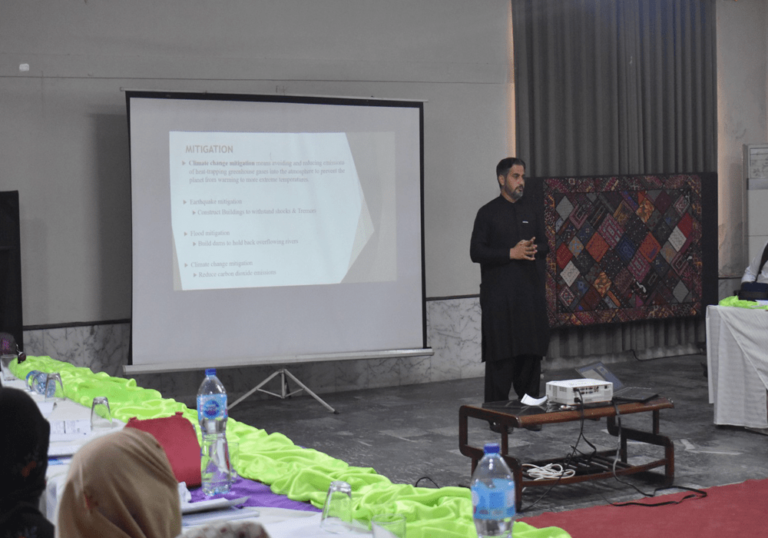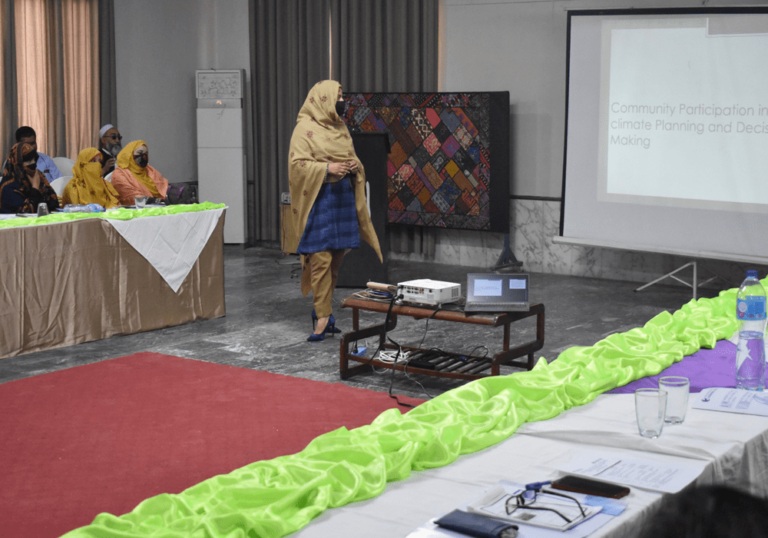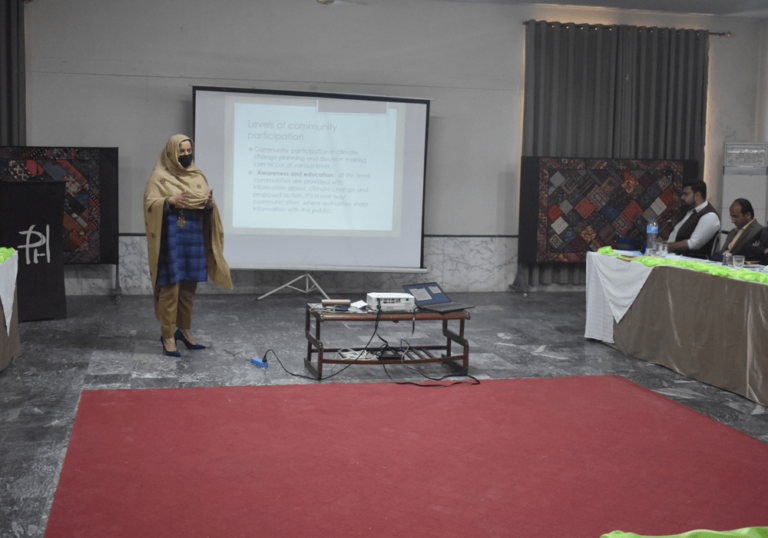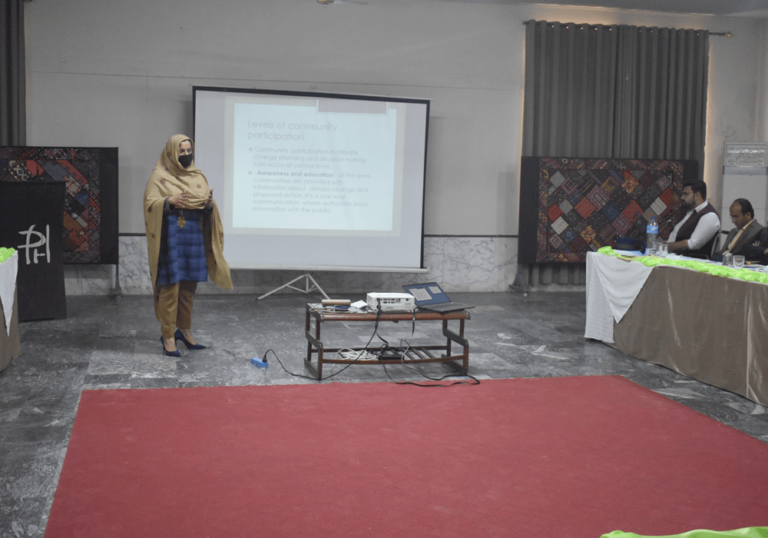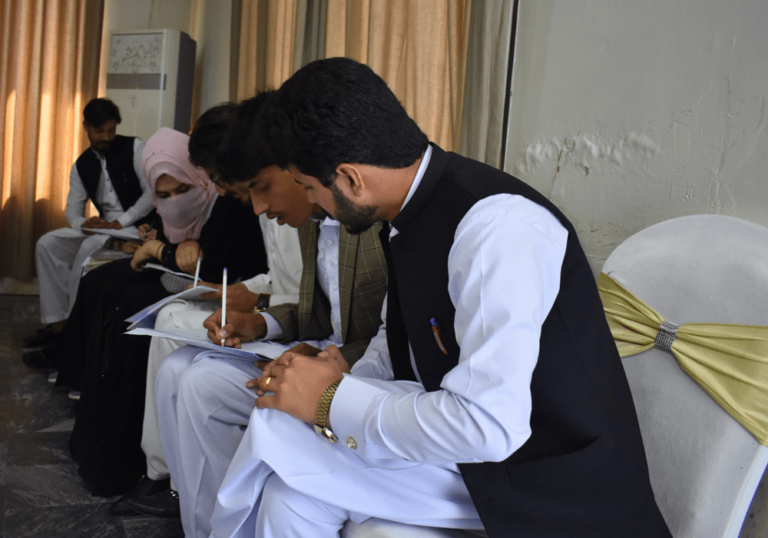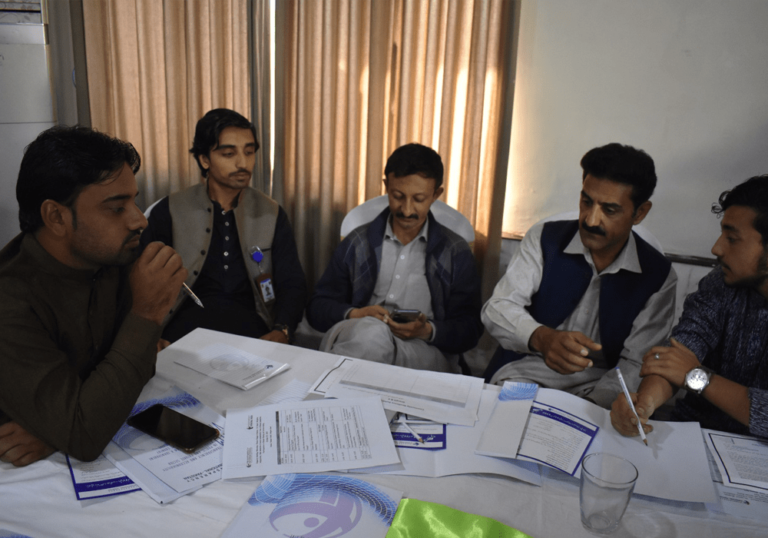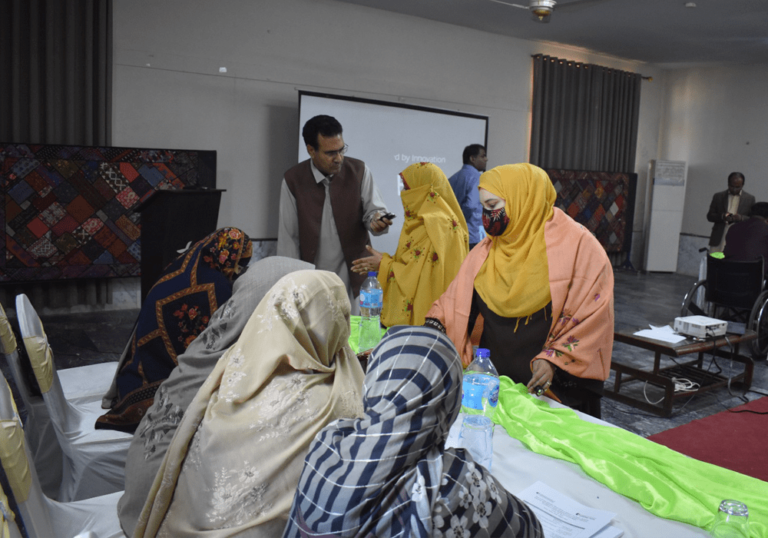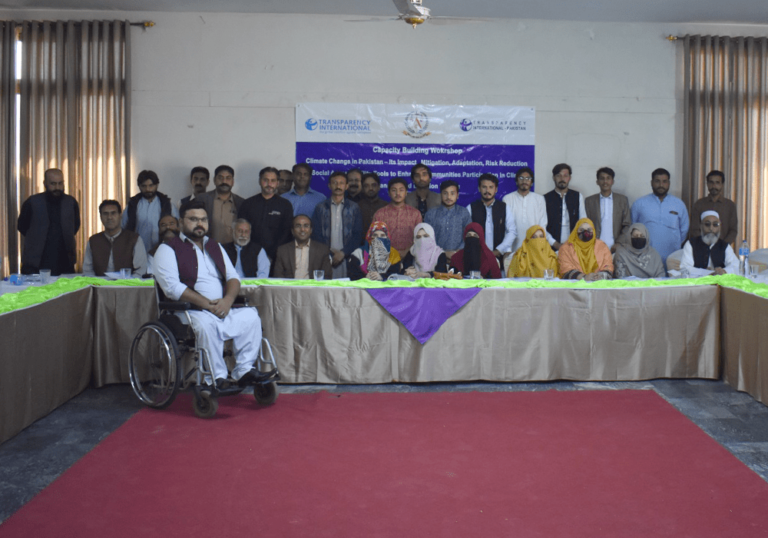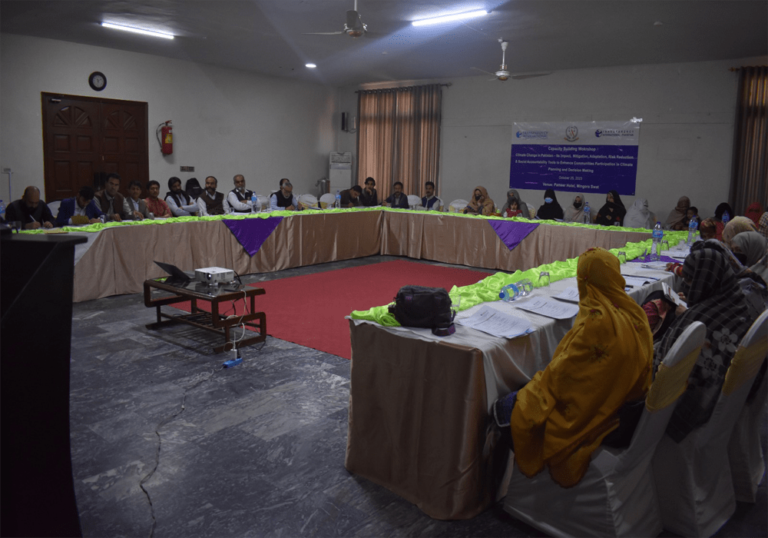- Home
- Training Workshop on Climate Change Impacts, Mitigation, Adaptation, Risk Reduction & Social Accountability Tools to Enhance Communities Participation in Climate Planning and Decision Making Pameer Hotel, Mingora City, District Swat
Training Workshop on Climate Change Impacts, Mitigation, Adaptation, Risk Reduction & Social Accountability Tools to Enhance Communities Participation in Climate Planning and Decision Making Pameer Hotel, Mingora City, District Swat
Training Workshop on Climate Change Impacts, Mitigation, Adaptation, Risk Reduction & Social Accountability Tools to Enhance Communities Participation in Climate Planning and Decision Making
Date: 25th October, 2023
Venue: Pameer Hotel, Mingora City, District Swat
Transparency International Pakistan organized a Training Workshop on the topic ‘Climate Change in Pakistan – Its Impacts, Mitigation, Adaptation, Risk Reduction & Social Accountability Tools to Enhance Communities Participation in Climate Planning and Decision Making’ in Mingora City, District Swat, Khyber Pakhtunkhwa. The workshop was attended by local community members, youth, Civil Society representatives, representatives of District Disaster Management Authority (DDMA), climate change Experts and journalists.
The main objective of the training workshop was to educate the communities on climate change mitigation, adaptation, resilience, and social accountability tools to enhance citizens participation in climate decision-making and empower them with the skills and tools to provide oversight to climate projects and raise voice against irregularities. A total 49 participants including 22 females attended the training workshop.
The event started with the recitation of the Holy Quran after which a round of introduction was held.
Mr. Kashif Ali, Executive Director, Transparency International Pakistan delivered the opening remarks. He described the organization’s mission and work while highlighting the effects of climate change and the significance of cooperating with marginalized groups such as rural communities, women, young people and civil society organizations. He gave an overview of Climate Governance Integrity Program and discussed that how corruption in climate finance can delay the climate action and affect marginalized communities.
Mr. Tofique Wassan, Project Coordinator, TI Pakistan gave a detailed presentation on effects of climate change on District Swat. He highlighted that Swat is one of the most vulnerable districts to climate change and is regularly struck by flash floods, glacial lake outburst floods (GLOF) and land sliding. Swat’s unique ecological condition faces challenges as temperatures and precipitation patterns shift.
Mr. Tofique also discussed the gendered impacts of climate change. He said that women are more vulnerable to climate change due to societal roles and economic disparities. They often have limited access to resources, face increased burdens in accessing service delivery, and are disproportionately affected by climate-induced disasters. Additionally, women’s health and livelihoods are at greater risk as climate change exacerbates existing gender inequalities. Addressing climate change impacts requires recognizing and addressing these gender-specific vulnerabilities.
Afterwards, Mr. Shamsher Sham, Program Officer, The Awakening Swat and an Acumen Fellow Pakistan, gave a presentation on Climate Change Mitigation, Adaption & Resilience. He highlighted that mitigation helps to address the cause of the problem. He explained adaptation which refers to making changes to human and natural systems to respond to the future impacts of climate change. Adaptation attempts to address the effects of the problem. He also shared changes in life practices and tips for adaptable living.
He suggested few measures for mitigation such as constructing buildings to withstand shocks & tremors as earthquake mitigation, building dams to hold back overflowing rivers as flood mitigation and reducing carbon dioxide emissions as climate change mitigation.
He said that some of the adaptation measures such as building more secure facility locations and infrastructures, reforestation, flexible and diverse cultivation to be prepared for environmental catastrophes, and research and development on possible catastrophes, temperature behavior are crucial to deal with changing climate.
He told participants that reducing your carbon footprints and electricity usage, driving less, riding a bike cycle or going through the bus, recycling of the products and plantation are few steps which can be done as an individual, which can bring a significant change towards environment friendly society in Swat.
Afterwards, Ms. Neelum Khan discussed the Community Participation in Climate Planning and Decision Making under KP Climate Change Policy 2022. She said that community participation in climate planning and decision making involves involving local communities in effort to address climate change and its impacts at the local level. It’s about engaging local communities to work collectively towards climate mitigation and adaptation.
She further highlighted that engaging communities in planning equips them with the knowledge and skills to adapt to and mitigate climate impacts. It also enhances the sustainability of climate projects, when communities are engaged in decision making as they are more likely to embrace and support long term initiatives.
Afterwards, Mr. Tofique Wassan, Project Coordinator, TI Pakistan conducted a session on Social Accountability Tools for Preventing Environmental Crimes and Citizen Participation. He gave a detailed presentation on selected social accountability tools as community monitoring of climate projects and public consultations by the government entities. He highlighted that the KP Right to Information Act 2013 provide a good opportunity for the citizens to engage to promote transparent climate action in policy and project implementation and hold government accountable. He explained the jurisdiction of KP Information Commissions and how to use this act for acquiring information about utilization of climate funds, planning of development schemes and execution status. Applicants were taught to write an RTI application to the different relevant climate departments.
Moving on, a Community Resilience Building exercise was also conducted during the session. The participants were divided into different groups and were asked to identify Swat’s vulnerabilities and strengthens in three key areas namely infrastructure, environment and societal. Participants engaged to prioritize the risk of different hazards and propose mitigation measures.
Group 1 & 2 assigned to infrastructural vulnerabilities, highlighted the issues of unplanned constructions, lack of urban planning and transport system. Group 3 & 4 highlighted the environmental vulnerabilities such as floods, deforestation, unpredictable heat and cold waves and lack of efficient water and sewerage system which increase the intensity of floods. Group 5 & 6 pointed out the societal vulnerabilities such as lack of awareness regarding climate changes and environment degradation. The group criticized the behavior of constructing houses and commercial infrastructure taking into account environmental concerns.
All the groups emphasized on establishing strong coordination between all the departments to overcome the climate challenges, improving policy measures to meet the communities concerns and comprehensive and climate smart urban planning.
Towards the end, the participants expressed their gratitude to TI Pakistan for arranging training workshop and committed to apply the learnings to mitigate the effects of climate change in their locality and involve in climate planning and decision making.


